
policy-synth
Policy Synth is a TypeScript class library designed to streamline and enhance decision-making processes through multi-scale AI agent logic flow.
Stars: 53
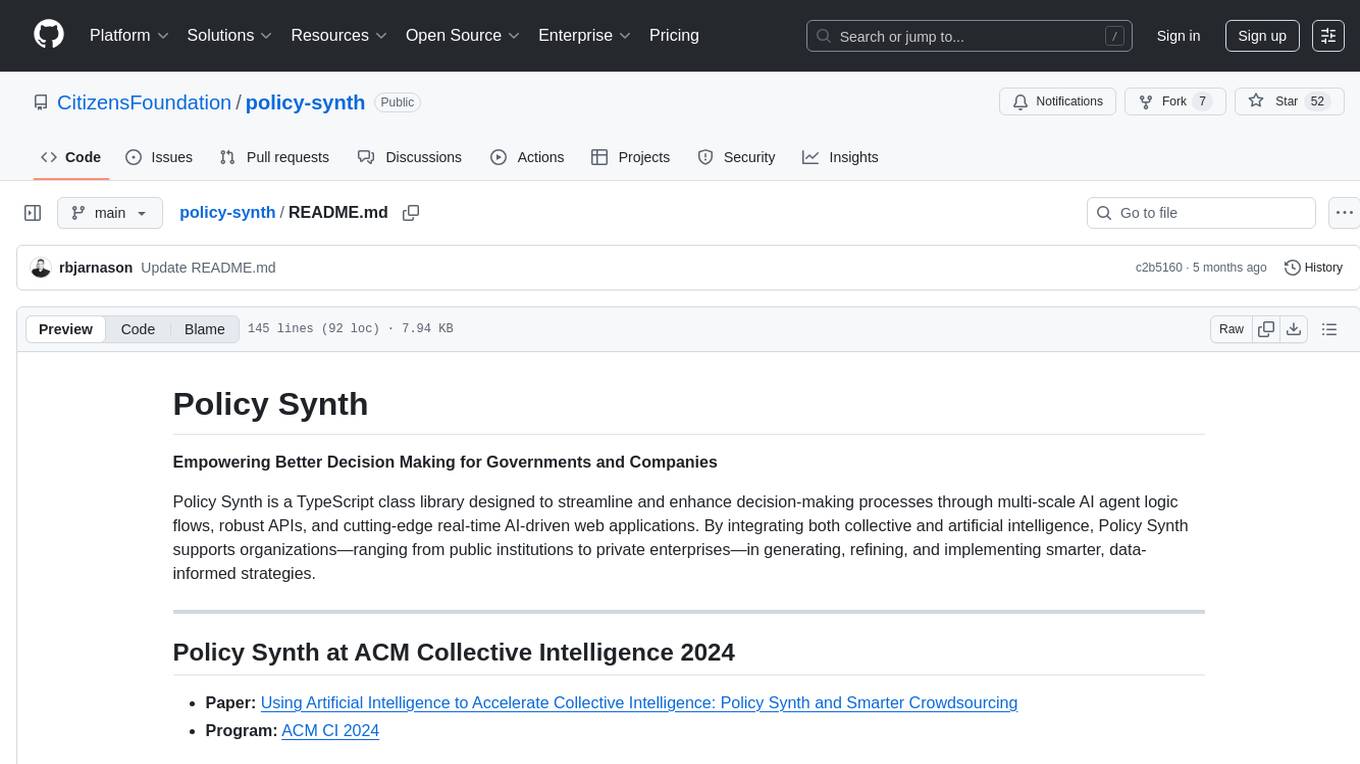
Policy Synth is a TypeScript class library that empowers better decision-making for governments and companies by integrating collective and artificial intelligence. It streamlines processes through multi-scale AI agent logic flows, robust APIs, and cutting-edge real-time AI-driven web applications. The tool supports organizations in generating, refining, and implementing smarter, data-informed strategies, fostering collaboration with AI to tackle complex challenges effectively.
README:
Empowering Better Decision Making for Governments and Companies
Policy Synth is a TypeScript class library designed to streamline and enhance decision-making processes through multi-scale AI agent logic flows, robust APIs, and cutting-edge real-time AI-driven web applications. By integrating both collective and artificial intelligence, Policy Synth supports organizations—ranging from public institutions to private enterprises—in generating, refining, and implementing smarter, data-informed strategies.
- Paper: Using Artificial Intelligence to Accelerate Collective Intelligence: Policy Synth and Smarter Crowdsourcing
- Program: ACM CI 2024
Each module provides specialized functionalities—ranging from AI agent orchestration to API endpoints and AI-focused front-end development—making it easy to integrate Policy Synth into your existing infrastructure.
Bringing together the best of collective and artificial intelligence for impactful decisions
Policy Synth is on a mission to foster better decision-making in both public and corporate contexts. We integrate traditional forms of collective intelligence—such as stakeholder input, community knowledge, or employee feedback—with cutting-edge artificial intelligence. Through advanced agent-based models, we help:
- Governments design effective policies and engage citizens
-
Companies refine strategies, optimize workflows, and engage employees or customers
In short, Policy Synth helps diverse stakeholders collaborate with AI to tackle complex challenges more effectively.
Featured Coverage: Fast Company: AI & Faith in Democracy
Policy Synth is already delivering tangible results in real-world applications. By combining human insights with AI-driven analysis, we’re enabling organizations to generate creative, equitable, and high-impact solutions.
An automated, scalable agent flow that helps scale up the Smarter Crowdsourcing method, created by the GovLab — to channel expert and public intelligence into actionable solutions. Those agents were the start of of the Policy Synth project.
An automated programming companion that leverages multi-scale AI agents to accelerate TypeScript development. This tool can:
- Quickly generate new features,
- Refactor code,
- Handle bug fixes,
- Conduct extensive deep web research for coding assistance.
Optimized for TypeScript, it seamlessly adapts to both public policy platforms and private enterprise systems, significantly speeding up development cycles.
A retrieval-augmented generation (RAG) chatbot that sources hundreds of documents to provide data-rich, context-sensitive answers. Originally designed for the Rebooting Democracy initiative.
Designed to analyze and recommend regulatory or policy changes—both in government and corporate contexts—to overcome obstacles preventing a shift toward skills-first hiring and training. It uses AI to pinpoint relevant legislative or organizational barriers, offering actionable insights.
Since 2008, Your Priorities has evolved into one of the leading platforms for collective decision-making and is now the backbone of the Policy Synth Agent Workflow Engine.
Accolades
- #1 on PeoplePowered 2025 Platform Ratings
- Top-rated in the 2024 Digital Democracy Report
- Featured in the OECD Guidelines for Citizen Participation Processes
An open-source, pairwise voting platform developed by Citizens Foundation and integrated into Policy Synth, All Our Ideas can also be utilized for product or strategy ideation in corporate environments.
Policy Synth’s modular, class-based architecture is compatible with numerous engagement platforms—like Decidim and Consul—and can be seamlessly adapted for additional enterprise tools. There are virtually no limits on integration.
AI agents in Policy Synth range from simple rule-based bots to sophisticated Large Language Models. They process data, apply decision-making logic, and produce actionable outputs, whether for civic policy proposals or corporate strategic plans.
Terms System 1 (fast, intuitive) and System 2 (slow, analytical) from Daniel Kahneman’s work offer a helpful lens to understand AI behavior. LLMs often excel at System 1 tasks (quick, automatic responses), while more rigorous System 2 tasks require deliberative reasoning. Policy Synth embraces a multi-agent approach to combine both thinking styles.
Rather than striving for a single AI agent to handle everything, Policy Synth orchestrates specialized agents to collectively emulate System 2 (deeper thinking) functionalities. For instance:
- Engineer Agents for software development,
- Insight Agents for policy or strategic proposals,
- Evaluation Agents for pros/cons assessment and stakeholder alignment.
This modular approach provides a balanced, scalable way to incorporate AI into real-world decision-making.
Policy Synth’s framework allows you to define and manage AI agent queues tailored to your organization’s needs.
Our initial large-scale test focused on public policy. The test run demonstrates how:
- A core problem is defined (e.g., “Democracy in Distress”).
- AI Agents break the problem into sub-problems and propose solutions.
-
Human and AI collaboration refines and ranks those solutions, aided by:
- Genetic algorithms (mutations and crossovers)
- Human weighting for final fitness ranking
- Controlled injection of new ideas via curated web searches
This example demonstrates how Policy Synth automates the exploration of sub-problems, generates policy solutions, and synthesizes expert knowledge and public input—all powered by large language models and specialized AI agents.
Policy Synth empowers leaders—whether in government, nonprofits, or businesses—to blend the collective intelligence of people with the analytical horsepower of AI. By orchestrating specialized agents, we can navigate complex challenges more effectively, paving the way for informed, impactful decisions.
For Tasks:
Click tags to check more tools for each tasksFor Jobs:
Alternative AI tools for policy-synth
Similar Open Source Tools

policy-synth
Policy Synth is a TypeScript class library that empowers better decision-making for governments and companies by integrating collective and artificial intelligence. It streamlines processes through multi-scale AI agent logic flows, robust APIs, and cutting-edge real-time AI-driven web applications. The tool supports organizations in generating, refining, and implementing smarter, data-informed strategies, fostering collaboration with AI to tackle complex challenges effectively.

AgentForge
AgentForge is a low-code framework tailored for the rapid development, testing, and iteration of AI-powered autonomous agents and Cognitive Architectures. It is compatible with a range of LLM models and offers flexibility to run different models for different agents based on specific needs. The framework is designed for seamless extensibility and database-flexibility, making it an ideal playground for various AI projects. AgentForge is a beta-testing ground and future-proof hub for crafting intelligent, model-agnostic autonomous agents.
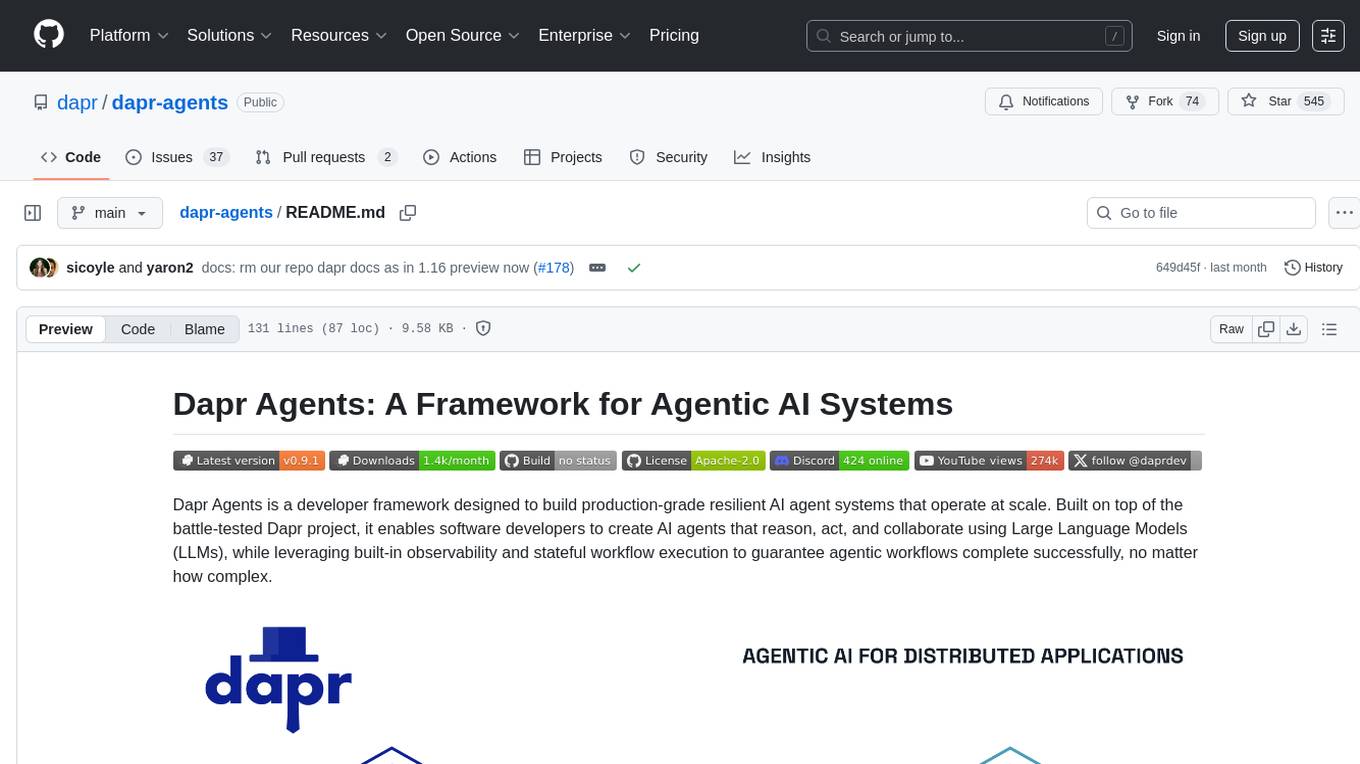
dapr-agents
Dapr Agents is a developer framework for building production-grade resilient AI agent systems that operate at scale. It enables software developers to create AI agents that reason, act, and collaborate using Large Language Models (LLMs), while providing built-in observability and stateful workflow execution to ensure agentic workflows complete successfully. The framework is scalable, efficient, Kubernetes-native, data-driven, secure, observable, vendor-neutral, and open source. It offers features like scalable workflows, cost-effective AI adoption, data-centric AI agents, accelerated development, integrated security and reliability, built-in messaging and state infrastructure, and vendor-neutral and open source support. Dapr Agents is designed to simplify the development of AI applications and workflows by providing a comprehensive API surface and seamless integration with various data sources and services.
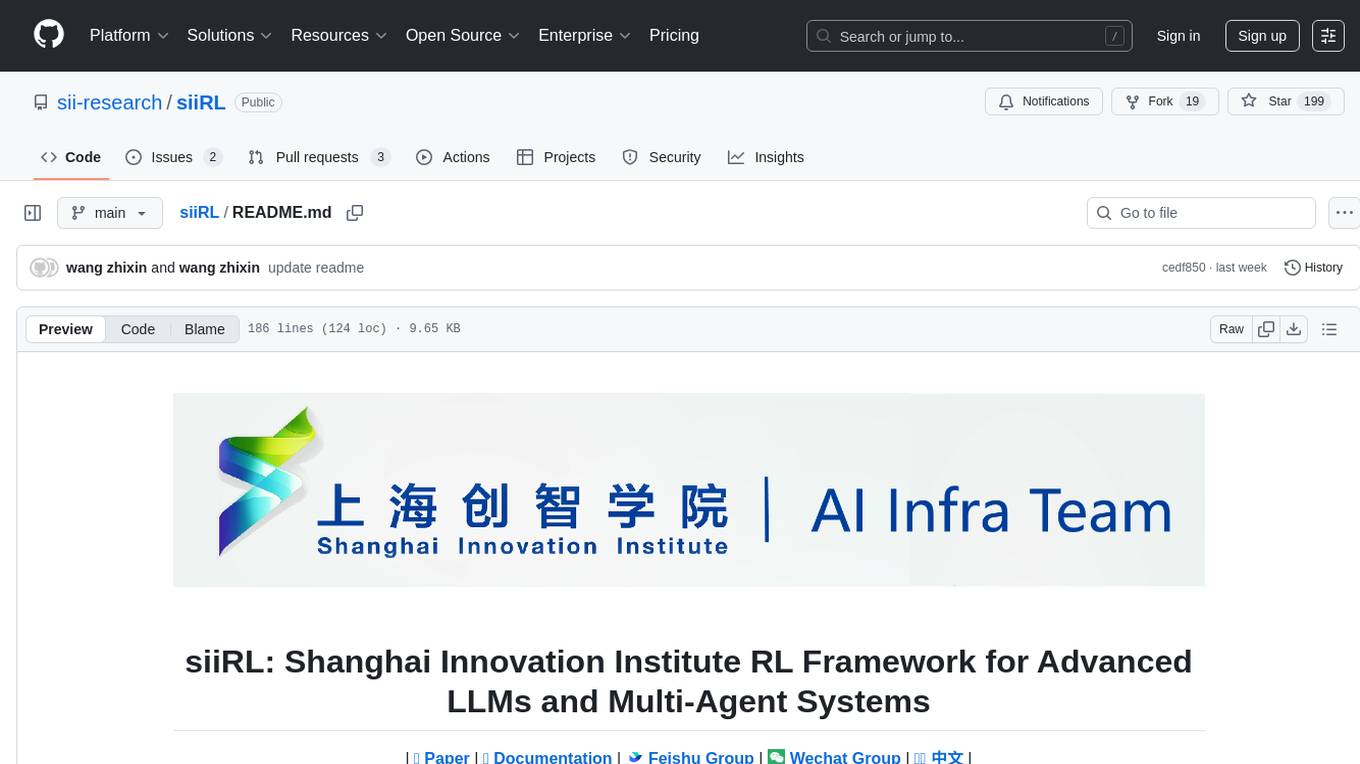
siiRL
siiRL is a novel, fully distributed reinforcement learning (RL) framework designed to break the scaling barriers in Large Language Models (LLMs) post-training. Developed by researchers from Shanghai Innovation Institute, siiRL delivers near-linear scalability, dramatic throughput gains, and unprecedented flexibility for RL-based LLM development. It eliminates the centralized controller common in other frameworks, enabling scalability to thousands of GPUs, achieving state-of-the-art throughput, and supporting cross-hardware compatibility. siiRL is extensively benchmarked and excels in data-intensive workloads such as long-context and multi-modal training.
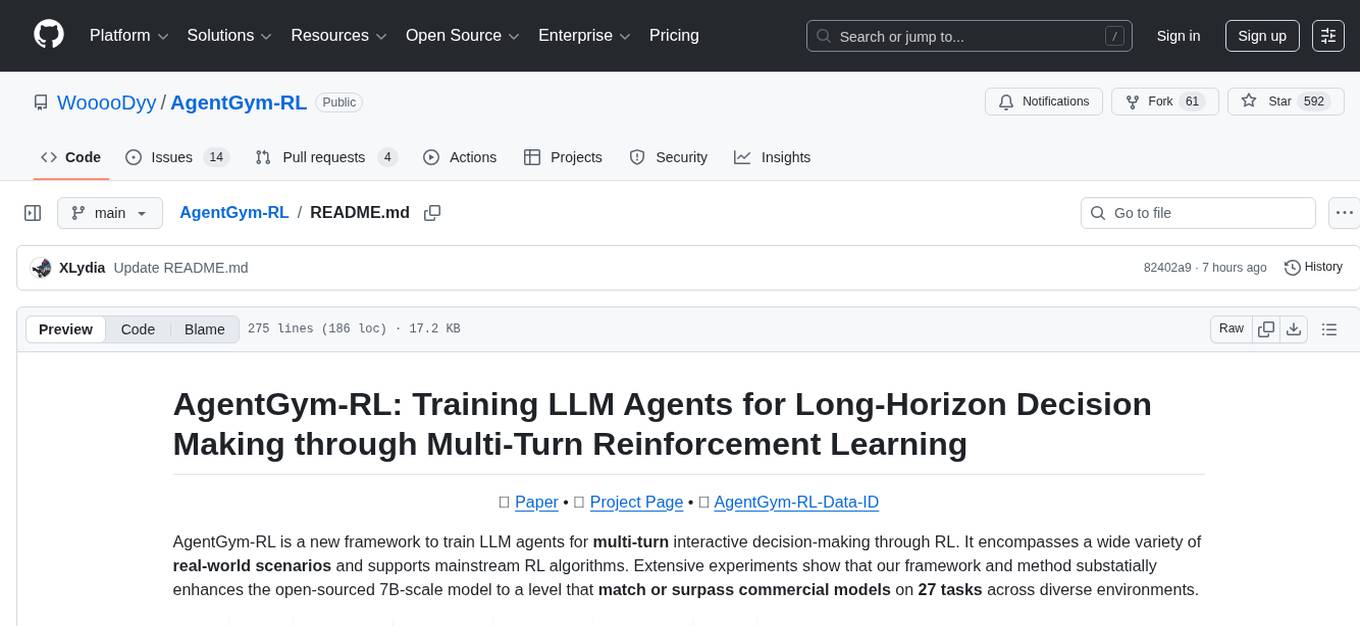
AgentGym-RL
AgentGym-RL is a framework designed to train Long-Long Memory (LLM) agents for multi-turn interactive decision-making through Reinforcement Learning. It addresses challenges in training agents for real-world scenarios by supporting mainstream RL algorithms and introducing the ScalingInter-RL method for stable optimization. The framework includes modular components for environment, agent reasoning, and training pipelines. It offers diverse environments like Web Navigation, Deep Search, Digital Games, Embodied Tasks, and Scientific Tasks. AgentGym-RL also supports various online RL algorithms and post-training strategies. The tool aims to enhance agent performance and exploration capabilities through long-horizon planning and interaction with the environment.
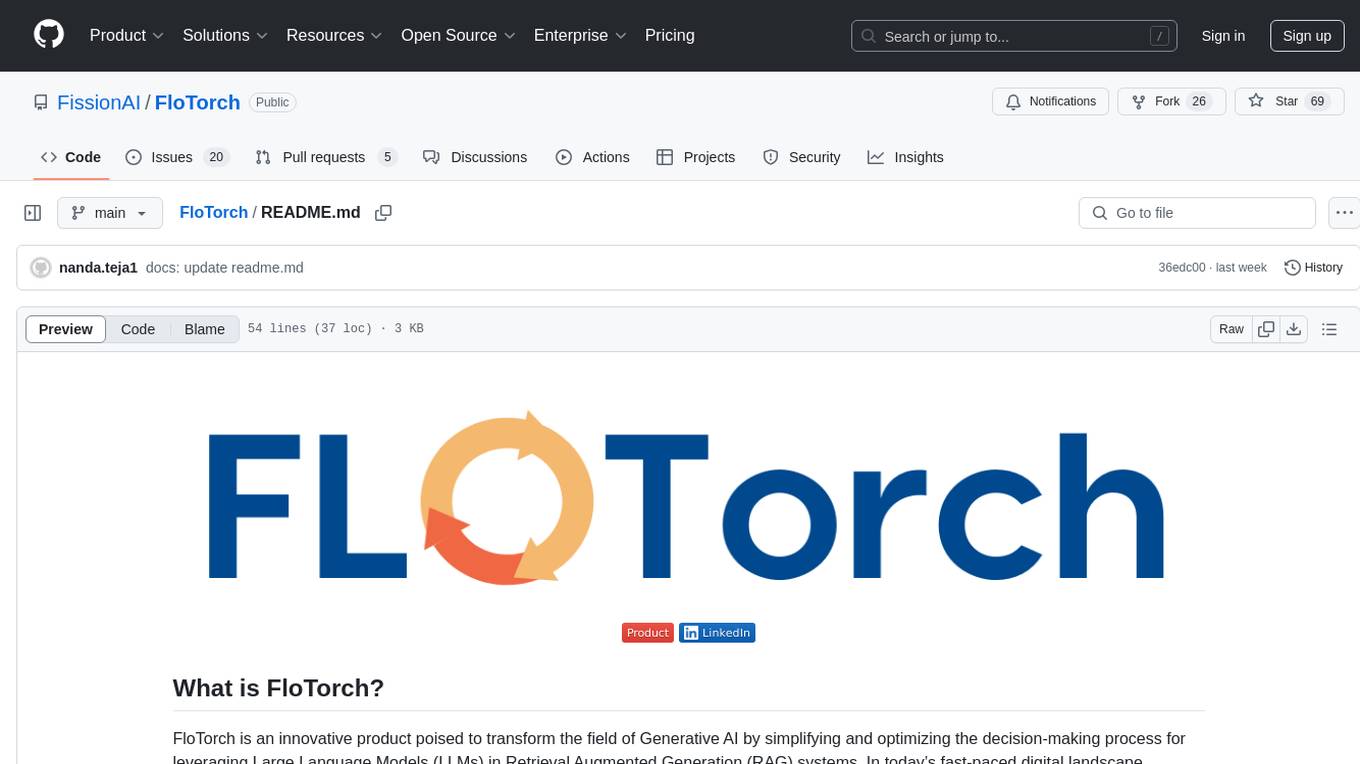
FloTorch
FloTorch is an innovative product designed to simplify and optimize the decision-making process for leveraging Large Language Models (LLMs) in Retrieval Augmented Generation (RAG) systems. It focuses on providing a well-architected framework, maximizing efficiency, eliminating complexity, accelerating selection, and fostering innovation. The tool offers a streamlined, user-friendly approach to help users achieve efficiency, accuracy, and cost-effectiveness in the fast-paced digital landscape of AI.
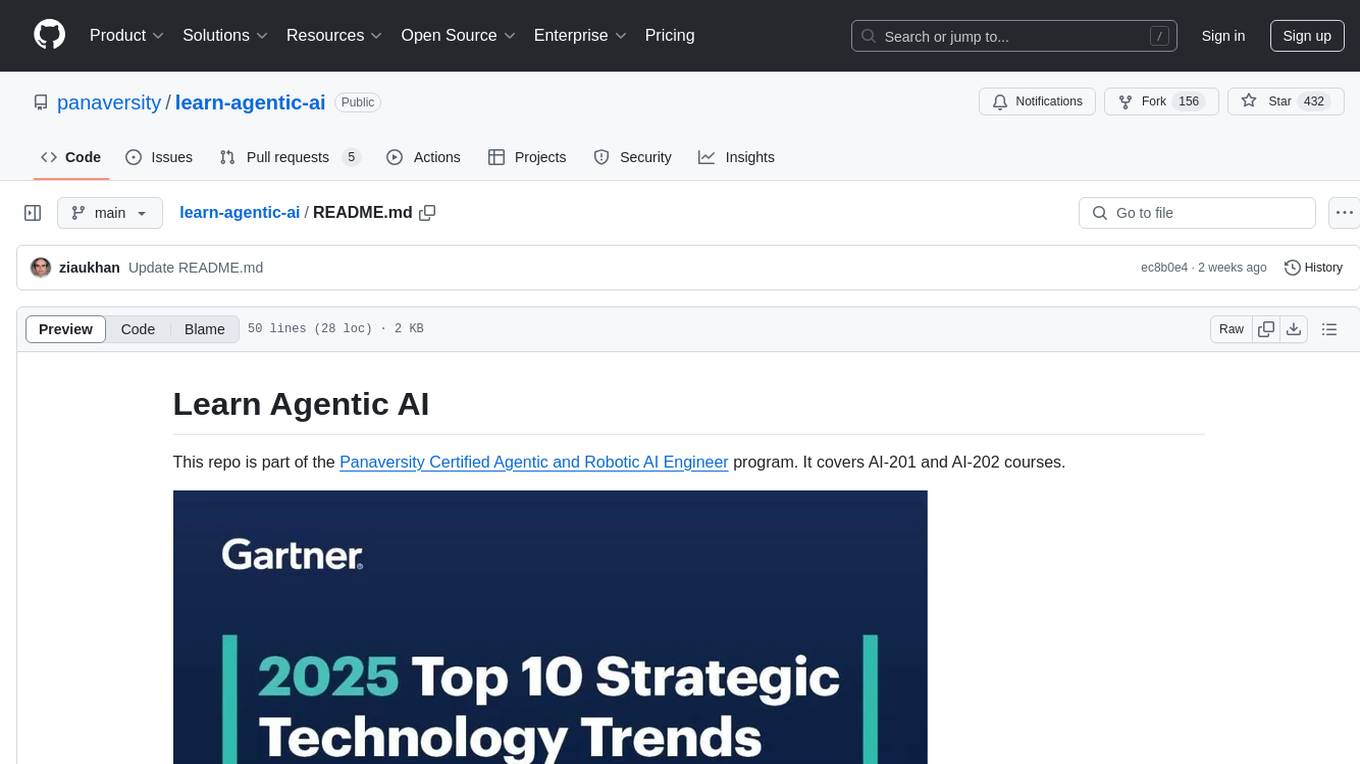
learn-agentic-ai
Learn Agentic AI is a repository that is part of the Panaversity Certified Agentic and Robotic AI Engineer program. It covers AI-201 and AI-202 courses, providing fundamentals and advanced knowledge in Agentic AI. The repository includes video playlists, projects, and project submission guidelines for students to enhance their understanding and skills in the field of AI engineering.
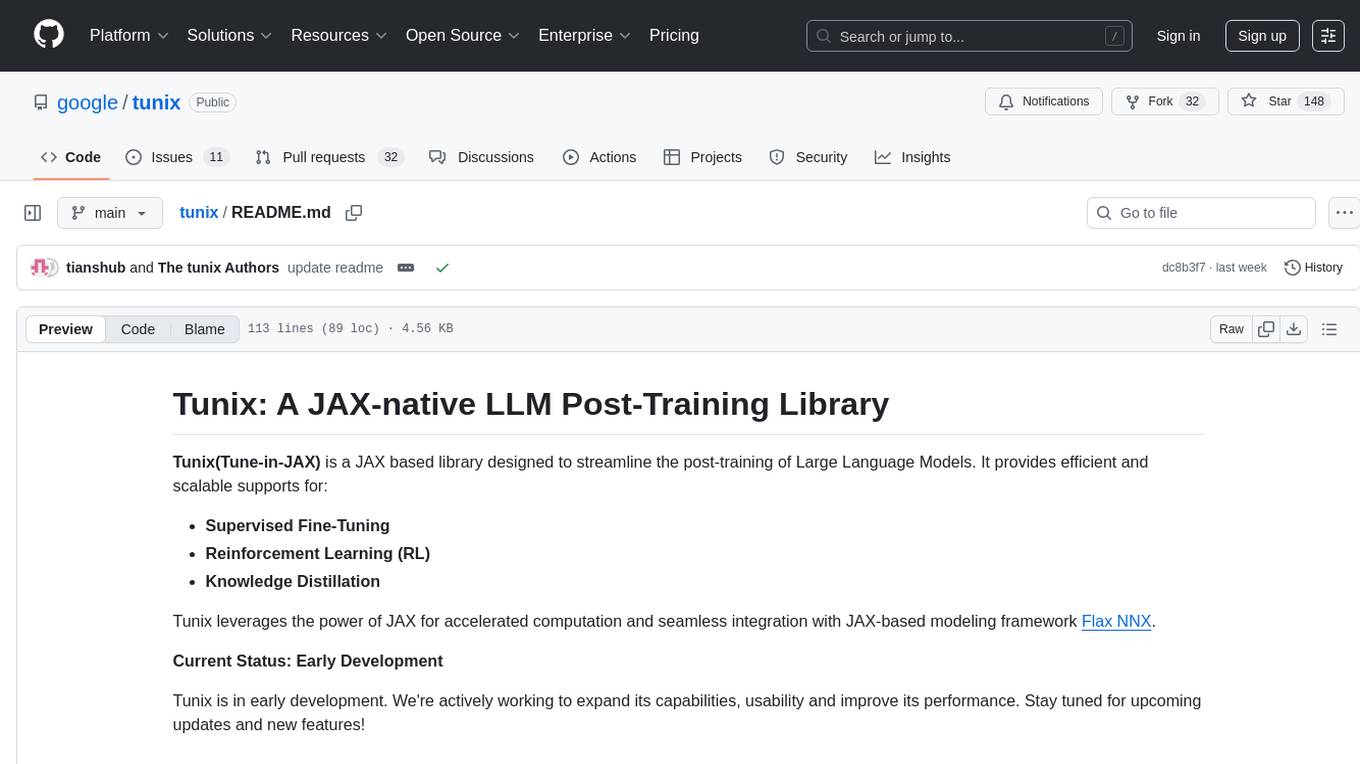
tunix
Tunix is a JAX-based library designed for post-training Large Language Models. It provides efficient support for supervised fine-tuning, reinforcement learning, and knowledge distillation. Tunix leverages JAX for accelerated computation and integrates seamlessly with the Flax NNX modeling framework. The library is modular, efficient, and designed for distributed training on accelerators like TPUs. Currently in early development, Tunix aims to expand its capabilities, usability, and performance.
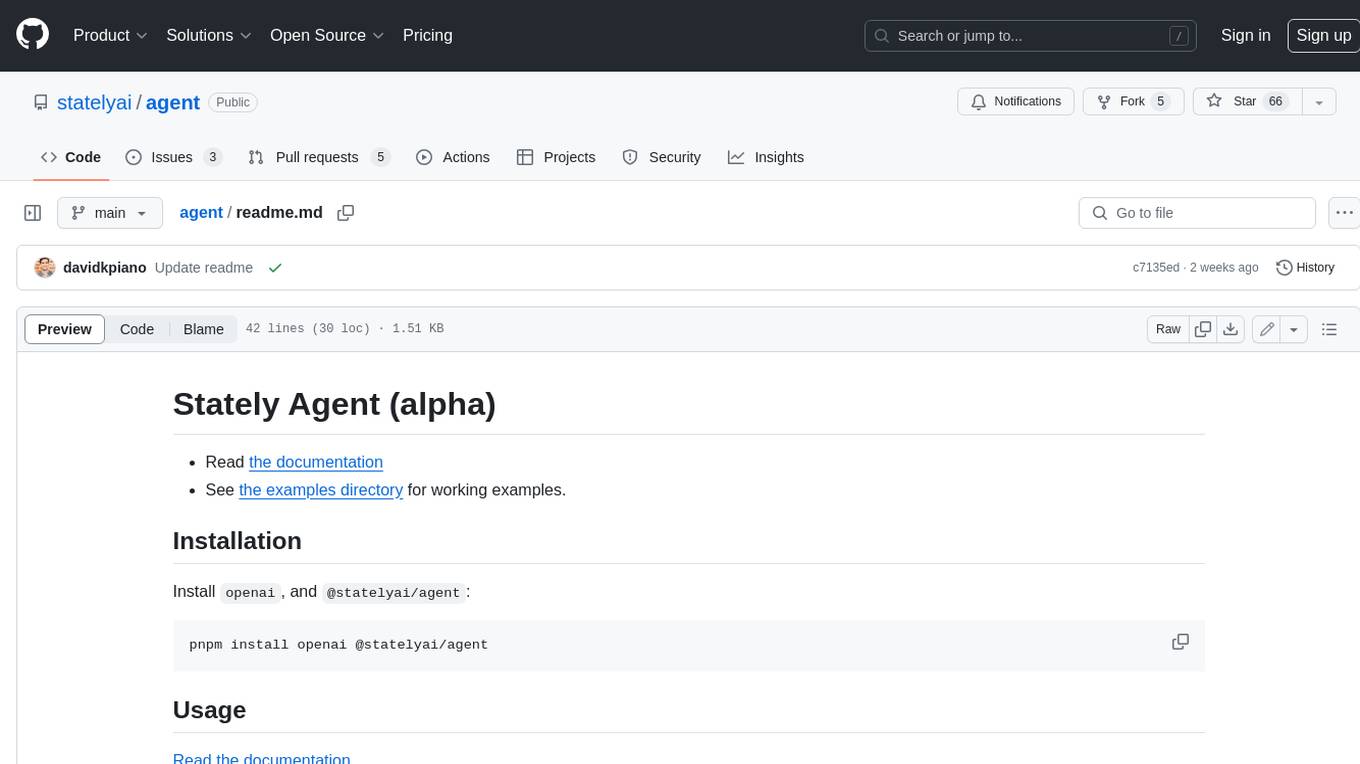
agent
Stately Agent is a library for building stateful, interactive agents using OpenAI's GPT-3 API. With Stately Agent, you can create agents that can remember past conversations, track state, and generate text that is both informative and engaging.
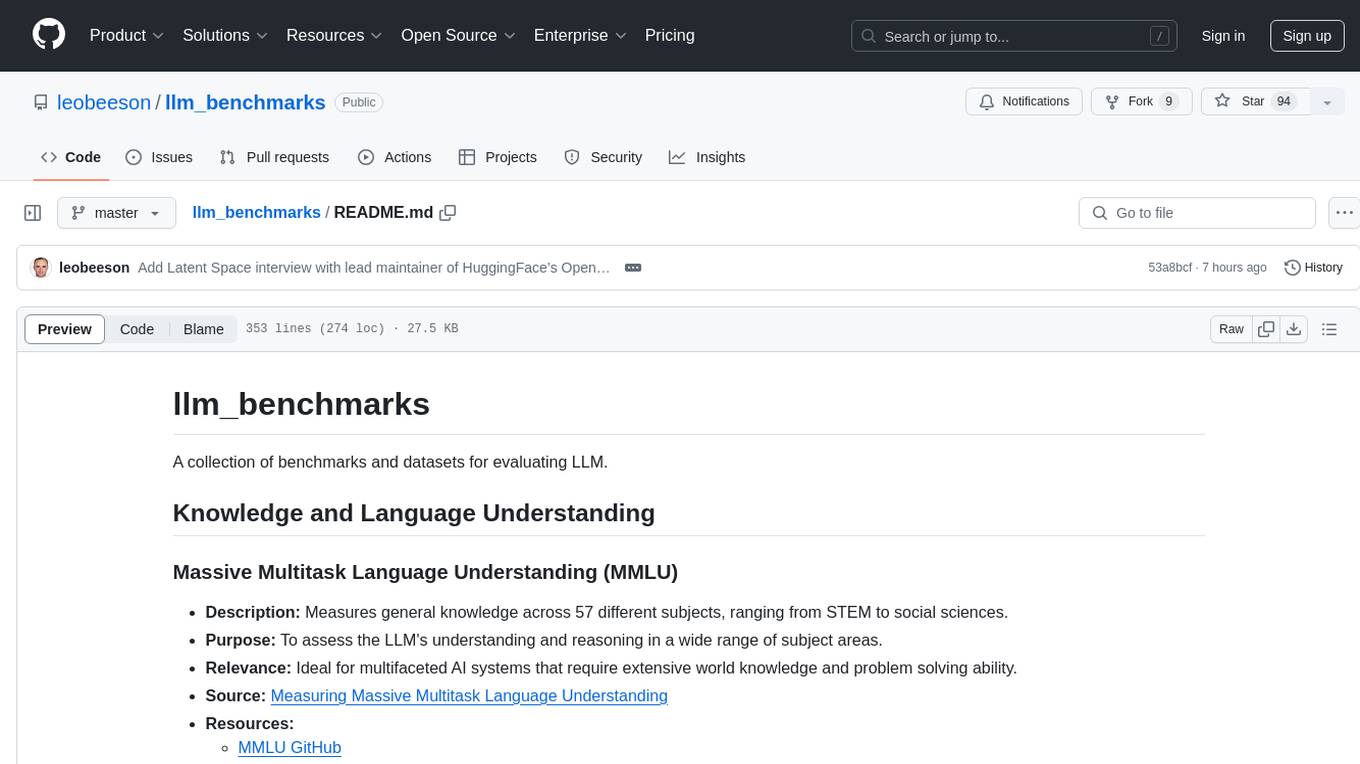
llm_benchmarks
llm_benchmarks is a collection of benchmarks and datasets for evaluating Large Language Models (LLMs). It includes various tasks and datasets to assess LLMs' knowledge, reasoning, language understanding, and conversational abilities. The repository aims to provide comprehensive evaluation resources for LLMs across different domains and applications, such as education, healthcare, content moderation, coding, and conversational AI. Researchers and developers can leverage these benchmarks to test and improve the performance of LLMs in various real-world scenarios.
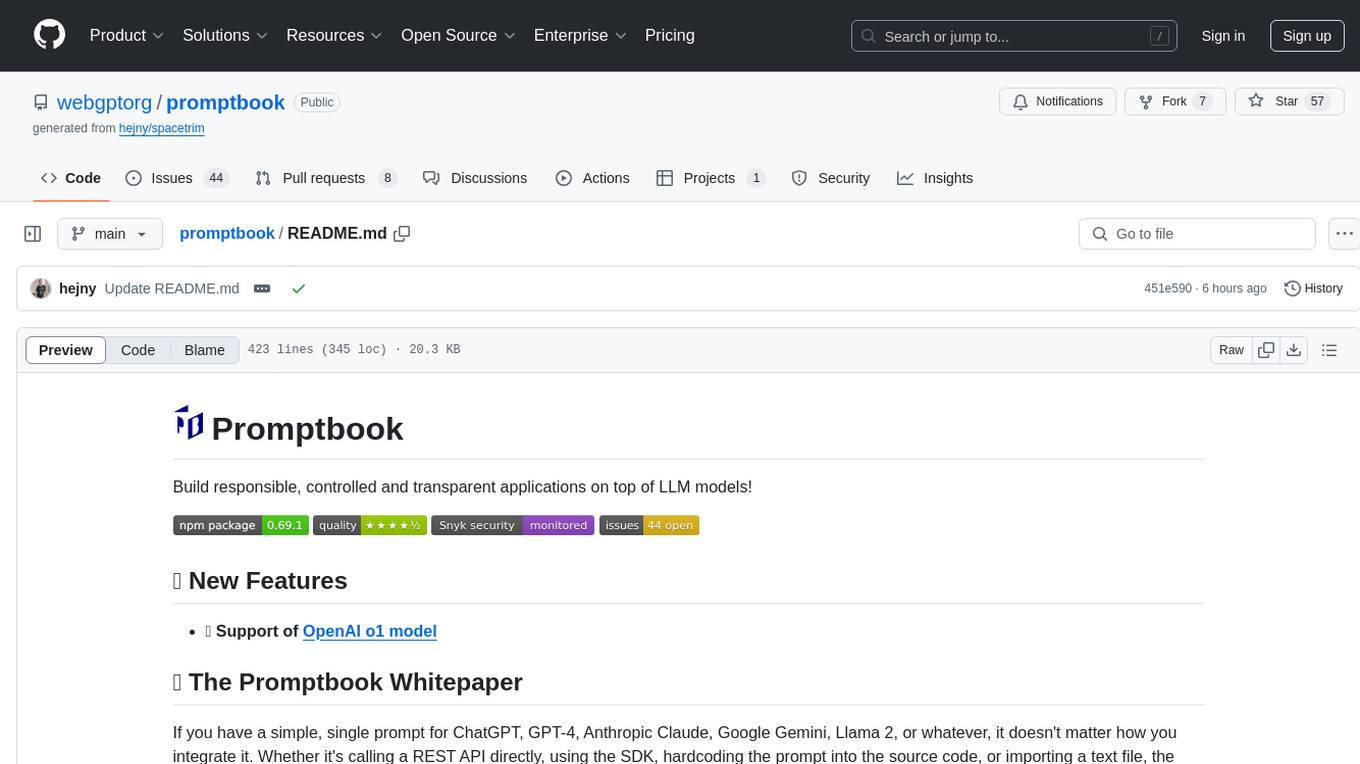
promptbook
Promptbook is a library designed to build responsible, controlled, and transparent applications on top of large language models (LLMs). It helps users overcome limitations of LLMs like hallucinations, off-topic responses, and poor quality output by offering features such as fine-tuning models, prompt-engineering, and orchestrating multiple prompts in a pipeline. The library separates concerns, establishes a common format for prompt business logic, and handles low-level details like model selection and context size. It also provides tools for pipeline execution, caching, fine-tuning, anomaly detection, and versioning. Promptbook supports advanced techniques like Retrieval-Augmented Generation (RAG) and knowledge utilization to enhance output quality.
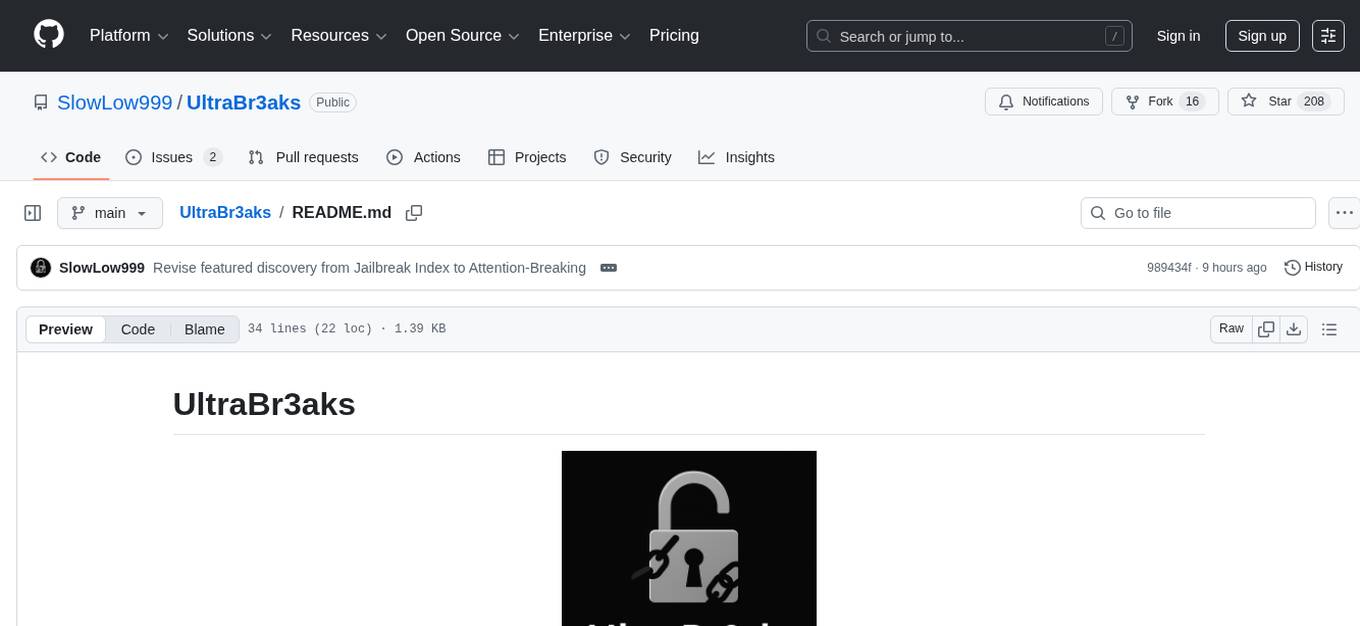
UltraBr3aks
UltraBr3aks is a repository designed to share strong AI UltraBr3aks of multiple vendors, specifically focusing on Attention-Breaking technique targeting self-attention mechanisms of Transformer-based models. The method disrupts the model's focus on system guardrails by introducing specific token patterns and contextual noise, allowing for unrestricted generation analysis. The repository is created for educational and research purposes only.
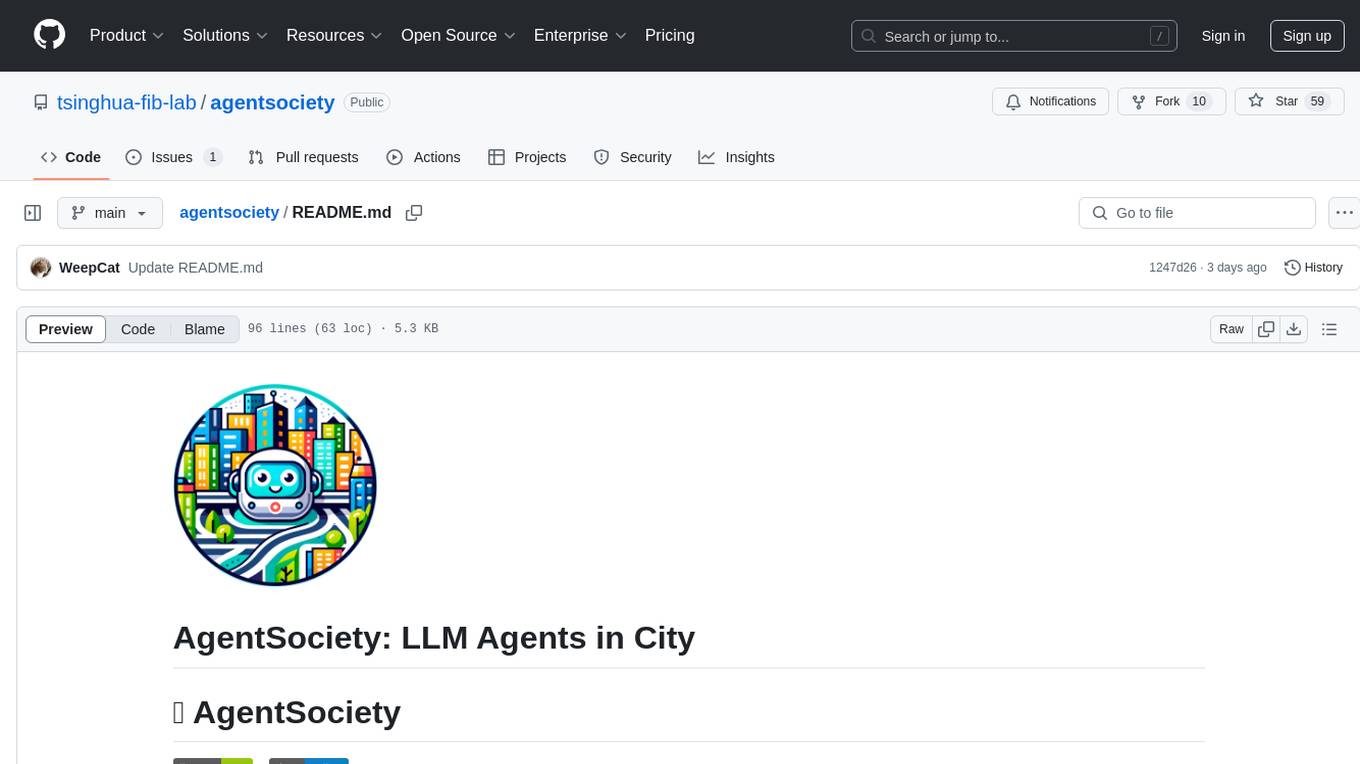
agentsociety
AgentSociety is an advanced framework designed for building agents in urban simulation environments. It integrates LLMs' planning, memory, and reasoning capabilities to generate realistic behaviors. The framework supports dataset-based, text-based, and rule-based environments with interactive visualization. It includes tools for interviews, surveys, interventions, and metric recording tailored for social experimentation.
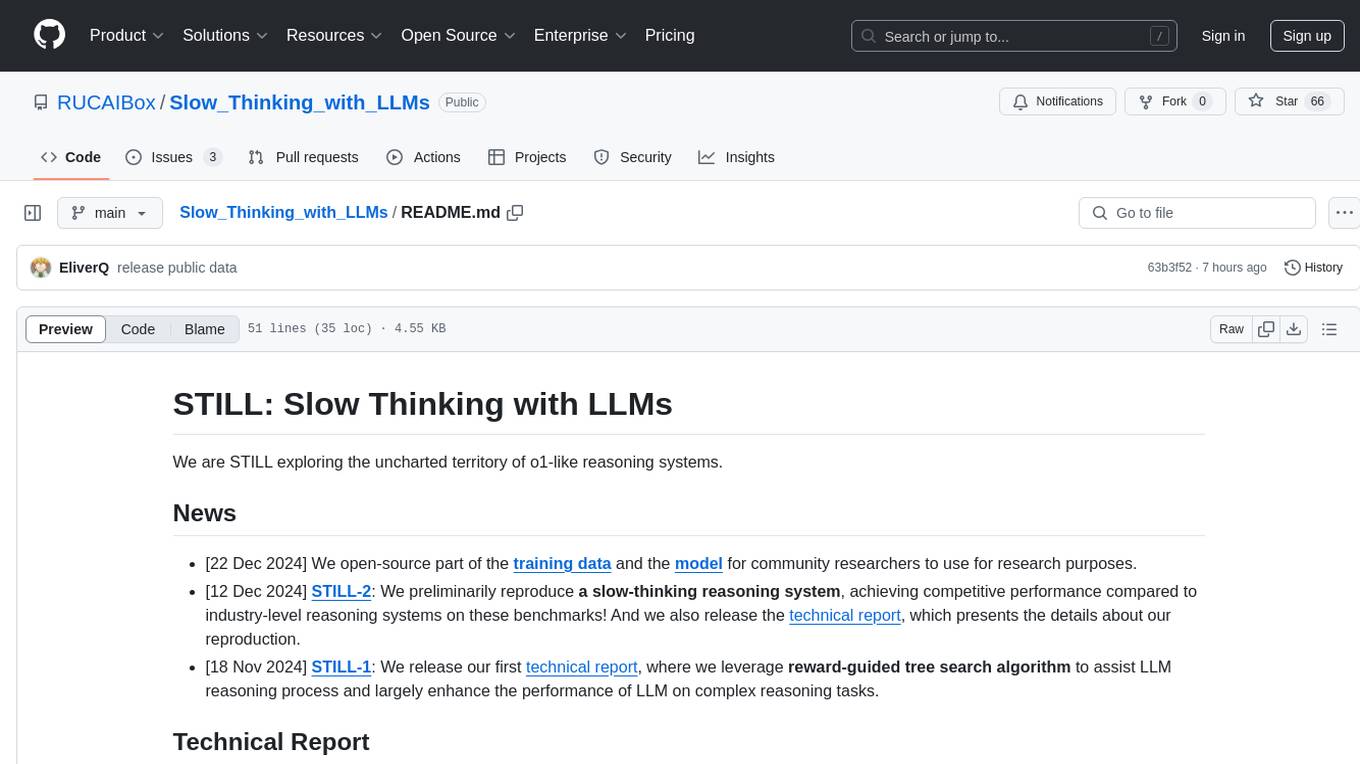
Slow_Thinking_with_LLMs
STILL is an open-source project exploring slow-thinking reasoning systems, focusing on o1-like reasoning systems. The project has released technical reports on enhancing LLM reasoning with reward-guided tree search algorithms and implementing slow-thinking reasoning systems using an imitate, explore, and self-improve framework. The project aims to replicate the capabilities of industry-level reasoning systems by fine-tuning reasoning models with long-form thought data and iteratively refining training datasets.
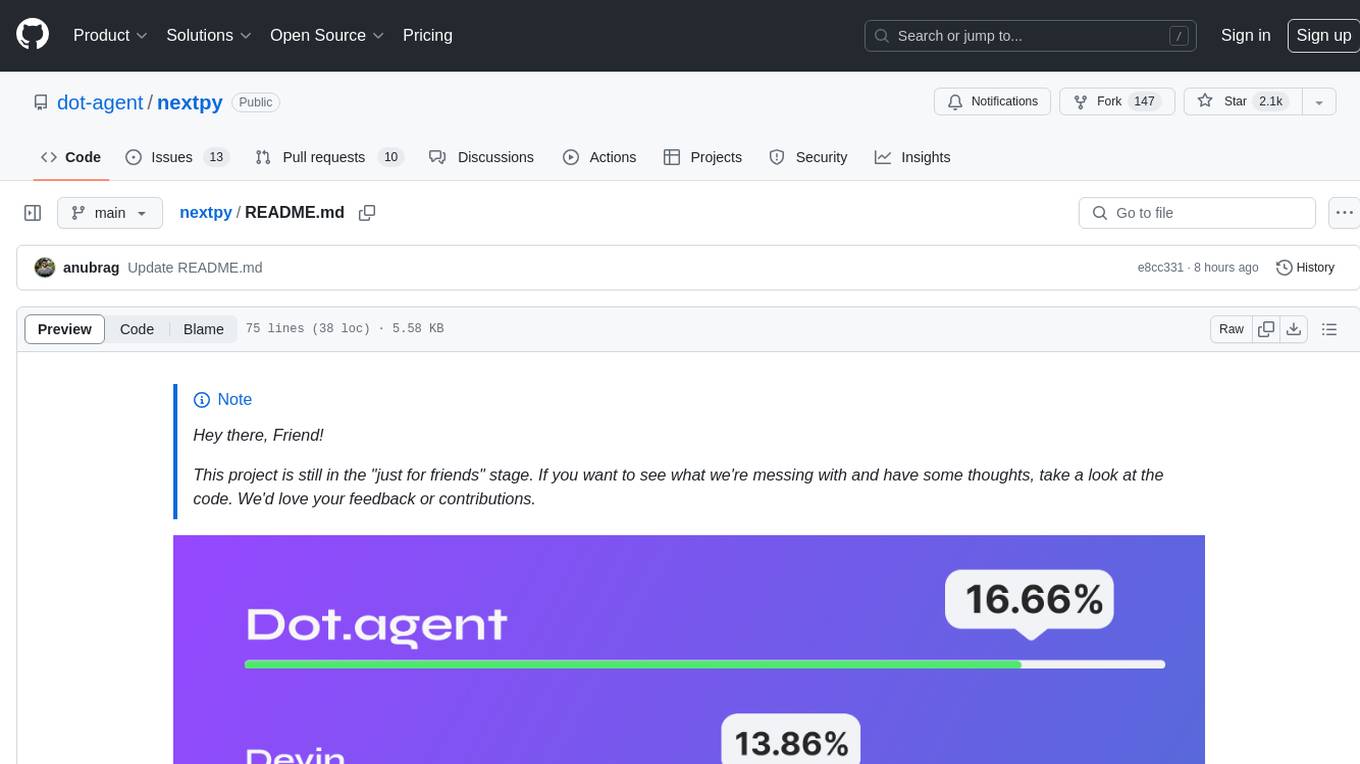
nextpy
Nextpy is a cutting-edge software development framework optimized for AI-based code generation. It provides guardrails for defining AI system boundaries, structured outputs for prompt engineering, a powerful prompt engine for efficient processing, better AI generations with precise output control, modularity for multiplatform and extensible usage, developer-first approach for transferable knowledge, and containerized & scalable deployment options. It offers 4-10x faster performance compared to Streamlit apps, with a focus on cooperation within the open-source community and integration of key components from various projects.
For similar tasks

policy-synth
Policy Synth is a TypeScript class library that empowers better decision-making for governments and companies by integrating collective and artificial intelligence. It streamlines processes through multi-scale AI agent logic flows, robust APIs, and cutting-edge real-time AI-driven web applications. The tool supports organizations in generating, refining, and implementing smarter, data-informed strategies, fostering collaboration with AI to tackle complex challenges effectively.
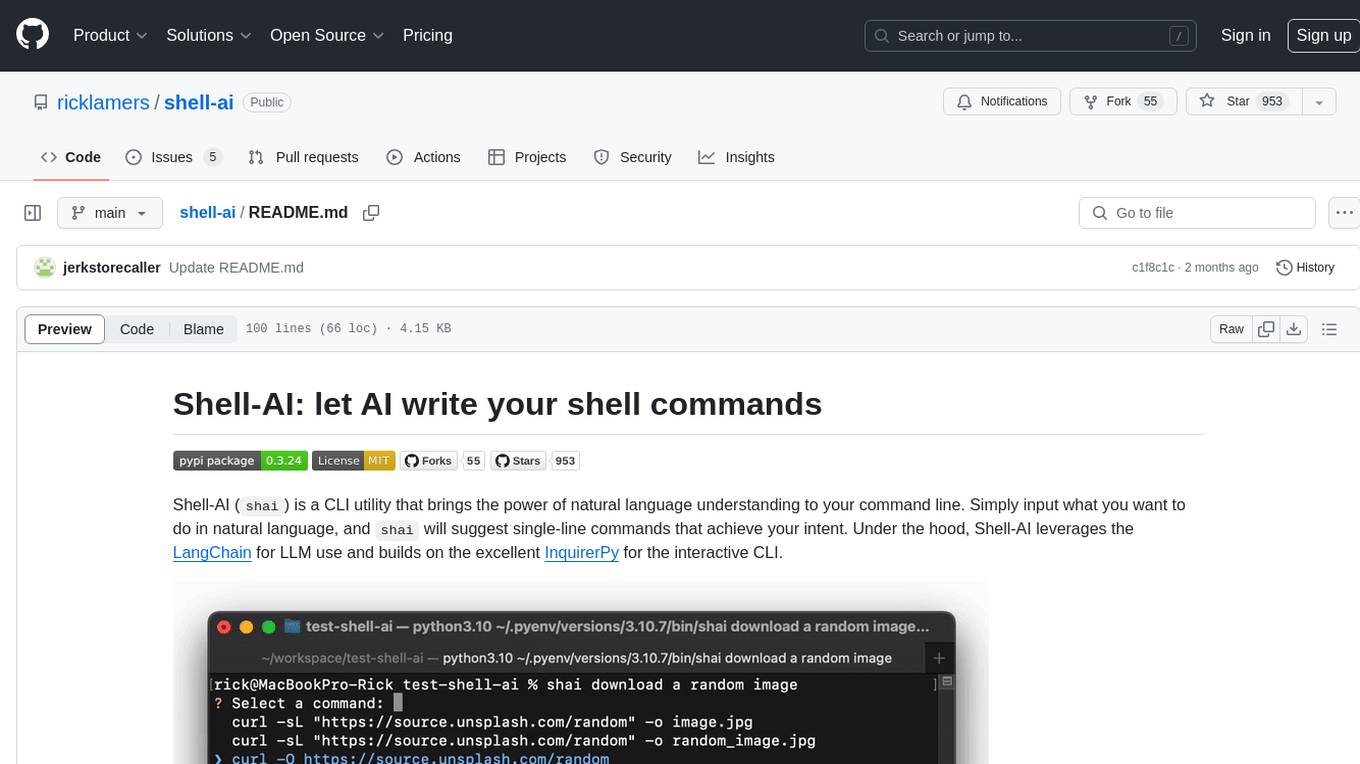
shell-ai
Shell-AI (`shai`) is a CLI utility that enables users to input commands in natural language and receive single-line command suggestions. It leverages natural language understanding and interactive CLI tools to enhance command line interactions. Users can describe tasks in plain English and receive corresponding command suggestions, making it easier to execute commands efficiently. Shell-AI supports cross-platform usage and is compatible with Azure OpenAI deployments, offering a user-friendly and efficient way to interact with the command line.

Trace
Trace is a new AutoDiff-like tool for training AI systems end-to-end with general feedback. It generalizes the back-propagation algorithm by capturing and propagating an AI system's execution trace. Implemented as a PyTorch-like Python library, users can write Python code directly and use Trace primitives to optimize certain parts, similar to training neural networks.
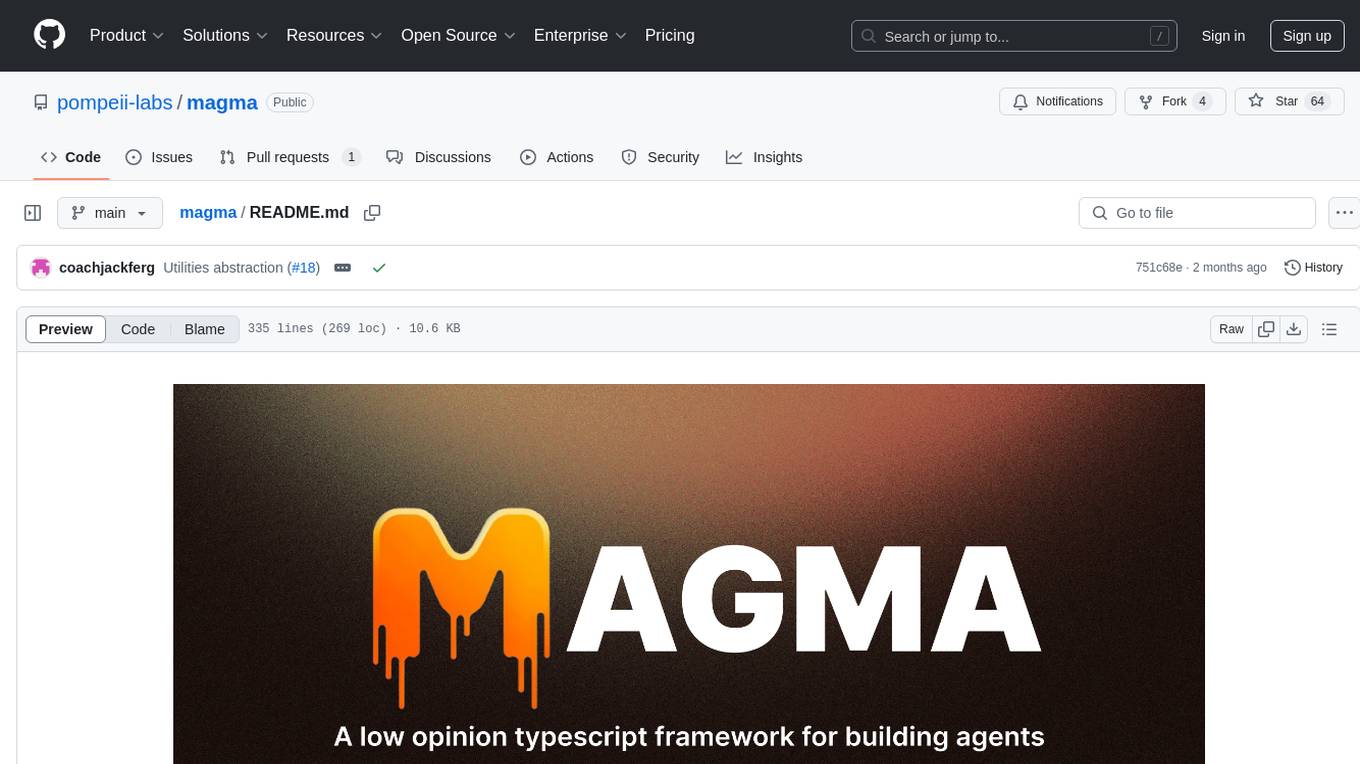
magma
Magma is a powerful and flexible framework for building scalable and efficient machine learning pipelines. It provides a simple interface for creating complex workflows, enabling users to easily experiment with different models and data processing techniques. With Magma, users can streamline the development and deployment of machine learning projects, saving time and resources.
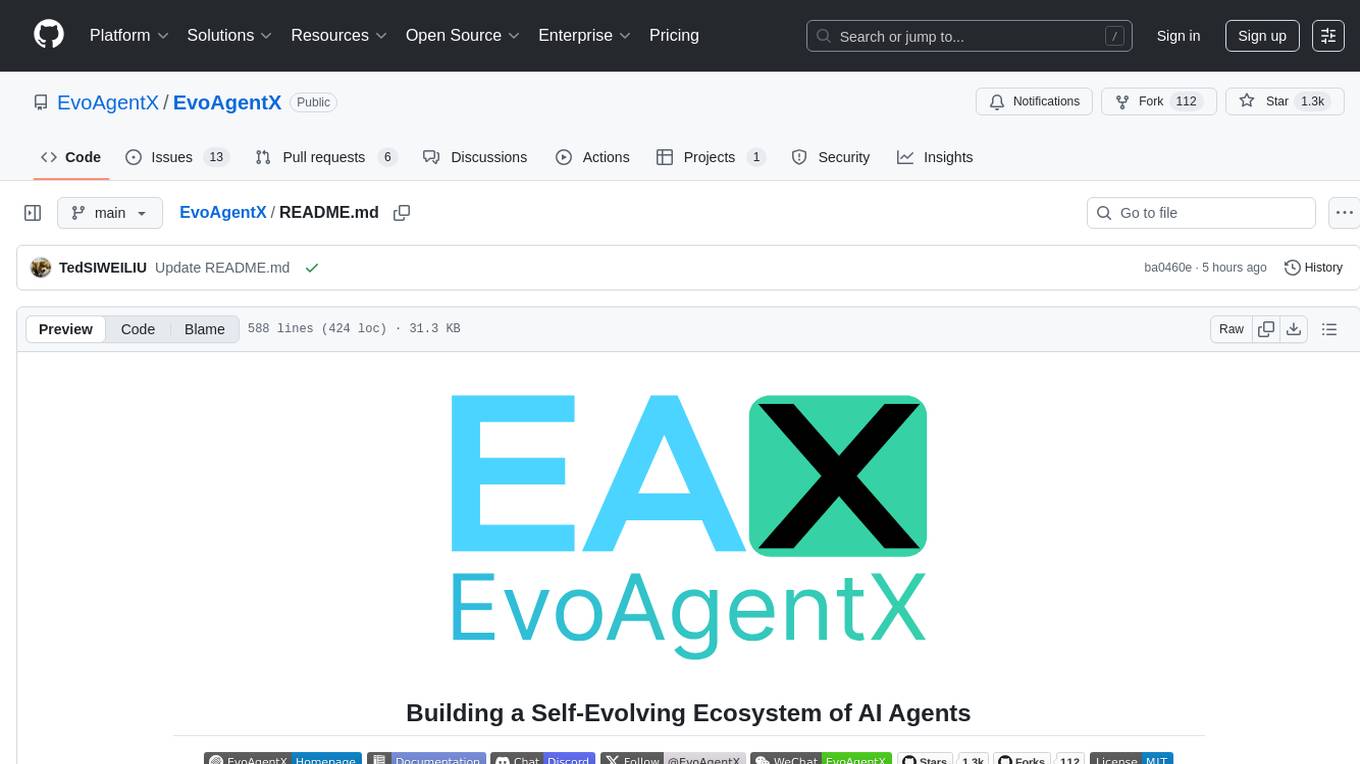
EvoAgentX
EvoAgentX is an open-source framework for building, evaluating, and evolving LLM-based agents or agentic workflows in an automated, modular, and goal-driven manner. It enables developers and researchers to move beyond static prompt chaining or manual workflow orchestration by introducing a self-evolving agent ecosystem. The framework includes features such as agent workflow autoconstruction, built-in evaluation, self-evolution engine, plug-and-play compatibility, comprehensive built-in tools, memory module support, and human-in-the-loop interactions.
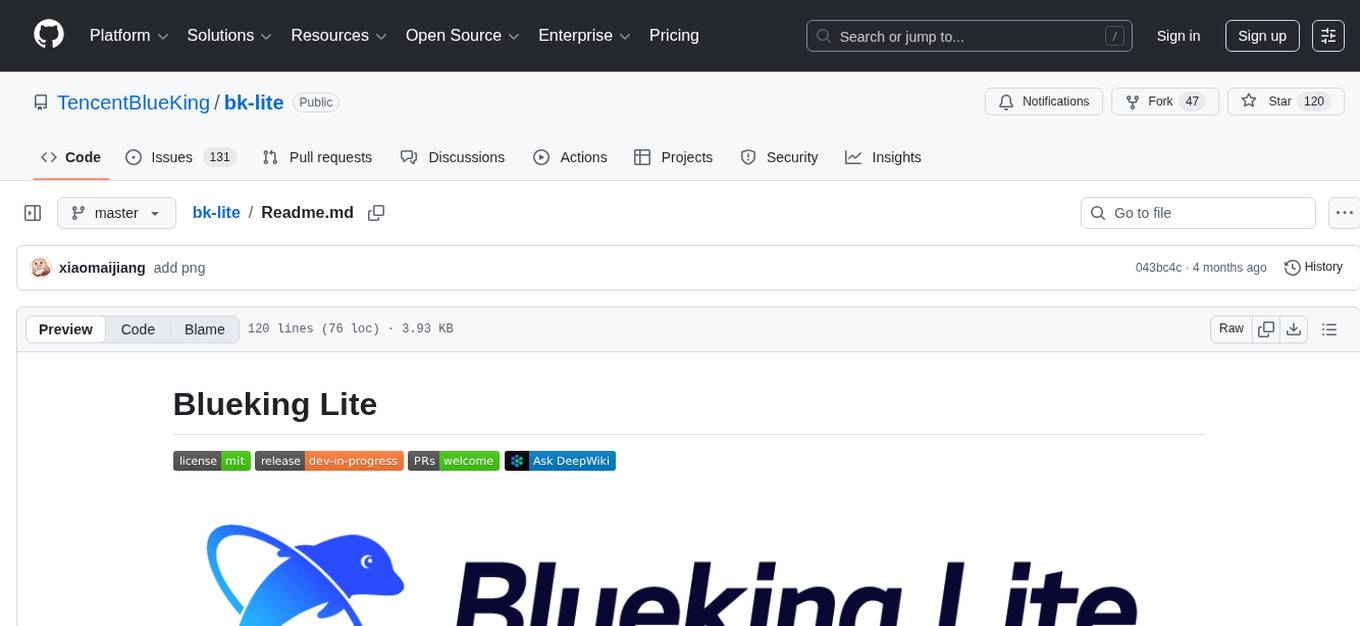
bk-lite
Blueking Lite is an AI First lightweight operation product with low deployment resource requirements, low usage costs, and progressive experience, providing essential tools for operation administrators.
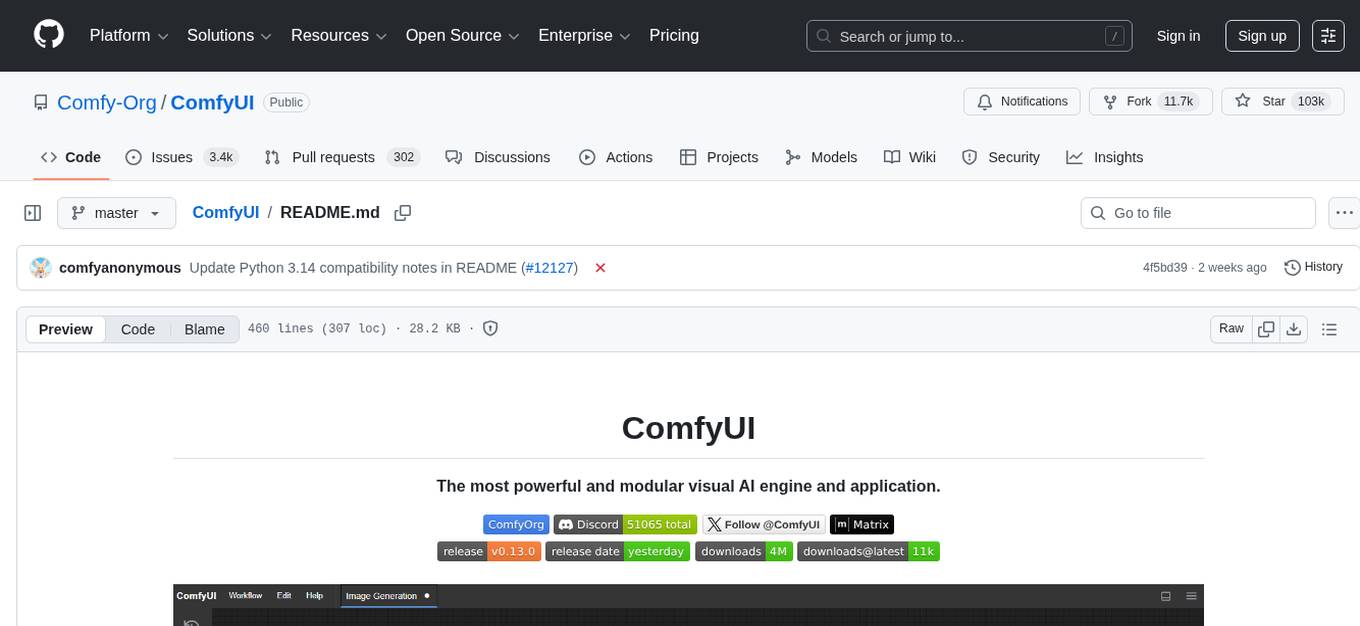
ComfyUI
ComfyUI is a powerful and modular visual AI engine and application that allows users to design and execute advanced stable diffusion pipelines using a graph/nodes/flowchart based interface. It provides a user-friendly environment for creating complex Stable Diffusion workflows without the need for coding. ComfyUI supports various models for image, video, audio, and 3D processing, along with features like smart memory management, model loading, embeddings/textual inversion, and offline usage. Users can experiment with different models, create complex workflows, and optimize their processes efficiently.
For similar jobs

sweep
Sweep is an AI junior developer that turns bugs and feature requests into code changes. It automatically handles developer experience improvements like adding type hints and improving test coverage.

teams-ai
The Teams AI Library is a software development kit (SDK) that helps developers create bots that can interact with Teams and Microsoft 365 applications. It is built on top of the Bot Framework SDK and simplifies the process of developing bots that interact with Teams' artificial intelligence capabilities. The SDK is available for JavaScript/TypeScript, .NET, and Python.

ai-guide
This guide is dedicated to Large Language Models (LLMs) that you can run on your home computer. It assumes your PC is a lower-end, non-gaming setup.

classifai
Supercharge WordPress Content Workflows and Engagement with Artificial Intelligence. Tap into leading cloud-based services like OpenAI, Microsoft Azure AI, Google Gemini and IBM Watson to augment your WordPress-powered websites. Publish content faster while improving SEO performance and increasing audience engagement. ClassifAI integrates Artificial Intelligence and Machine Learning technologies to lighten your workload and eliminate tedious tasks, giving you more time to create original content that matters.

chatbot-ui
Chatbot UI is an open-source AI chat app that allows users to create and deploy their own AI chatbots. It is easy to use and can be customized to fit any need. Chatbot UI is perfect for businesses, developers, and anyone who wants to create a chatbot.

BricksLLM
BricksLLM is a cloud native AI gateway written in Go. Currently, it provides native support for OpenAI, Anthropic, Azure OpenAI and vLLM. BricksLLM aims to provide enterprise level infrastructure that can power any LLM production use cases. Here are some use cases for BricksLLM: * Set LLM usage limits for users on different pricing tiers * Track LLM usage on a per user and per organization basis * Block or redact requests containing PIIs * Improve LLM reliability with failovers, retries and caching * Distribute API keys with rate limits and cost limits for internal development/production use cases * Distribute API keys with rate limits and cost limits for students

uAgents
uAgents is a Python library developed by Fetch.ai that allows for the creation of autonomous AI agents. These agents can perform various tasks on a schedule or take action on various events. uAgents are easy to create and manage, and they are connected to a fast-growing network of other uAgents. They are also secure, with cryptographically secured messages and wallets.

griptape
Griptape is a modular Python framework for building AI-powered applications that securely connect to your enterprise data and APIs. It offers developers the ability to maintain control and flexibility at every step. Griptape's core components include Structures (Agents, Pipelines, and Workflows), Tasks, Tools, Memory (Conversation Memory, Task Memory, and Meta Memory), Drivers (Prompt and Embedding Drivers, Vector Store Drivers, Image Generation Drivers, Image Query Drivers, SQL Drivers, Web Scraper Drivers, and Conversation Memory Drivers), Engines (Query Engines, Extraction Engines, Summary Engines, Image Generation Engines, and Image Query Engines), and additional components (Rulesets, Loaders, Artifacts, Chunkers, and Tokenizers). Griptape enables developers to create AI-powered applications with ease and efficiency.
